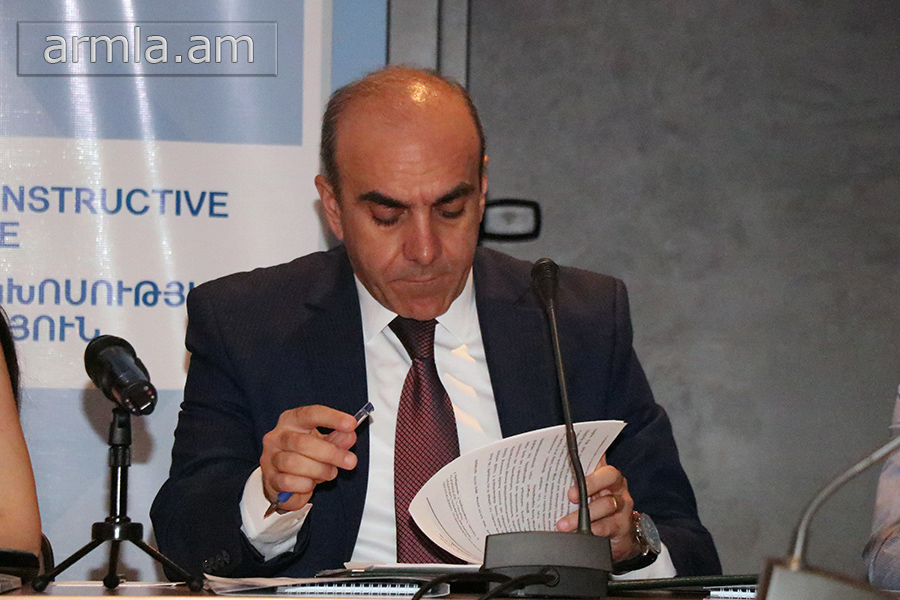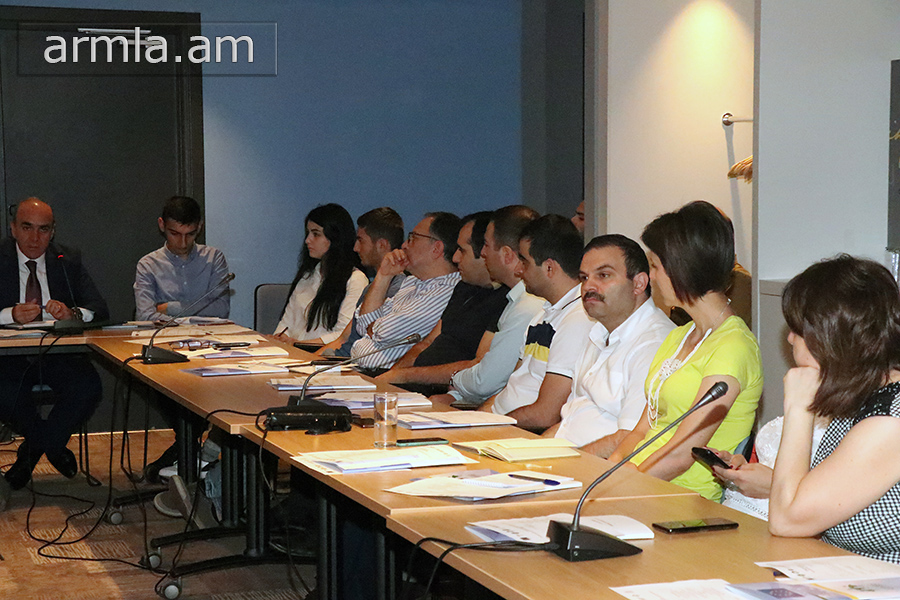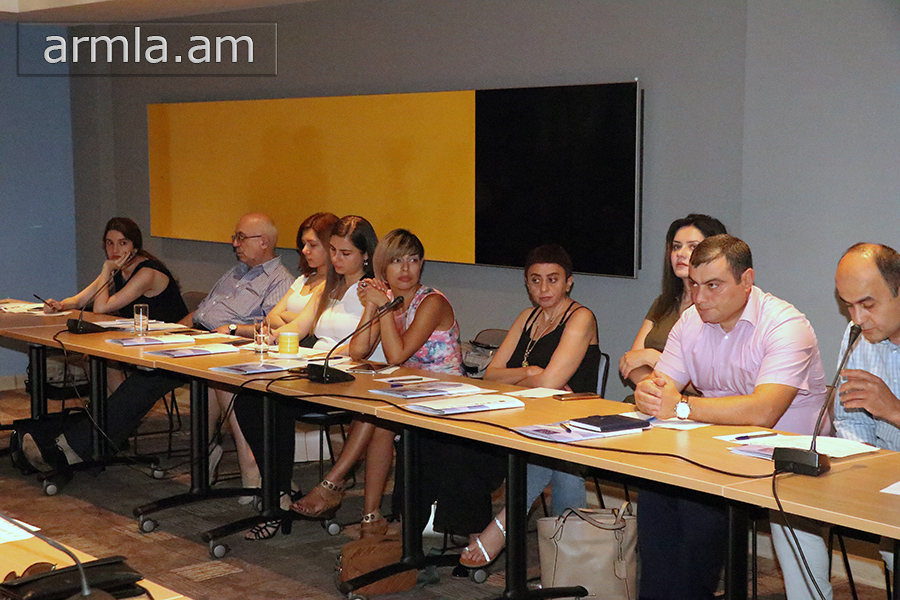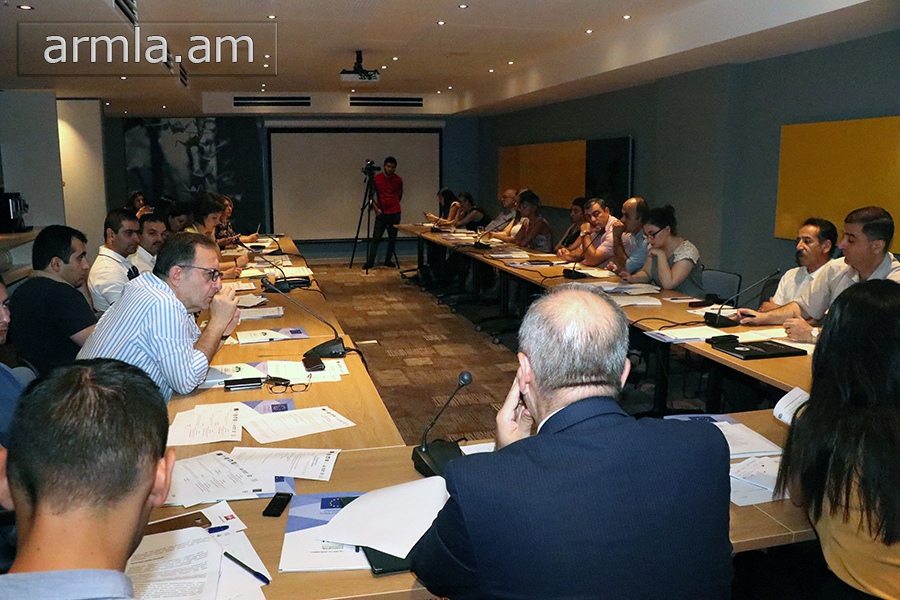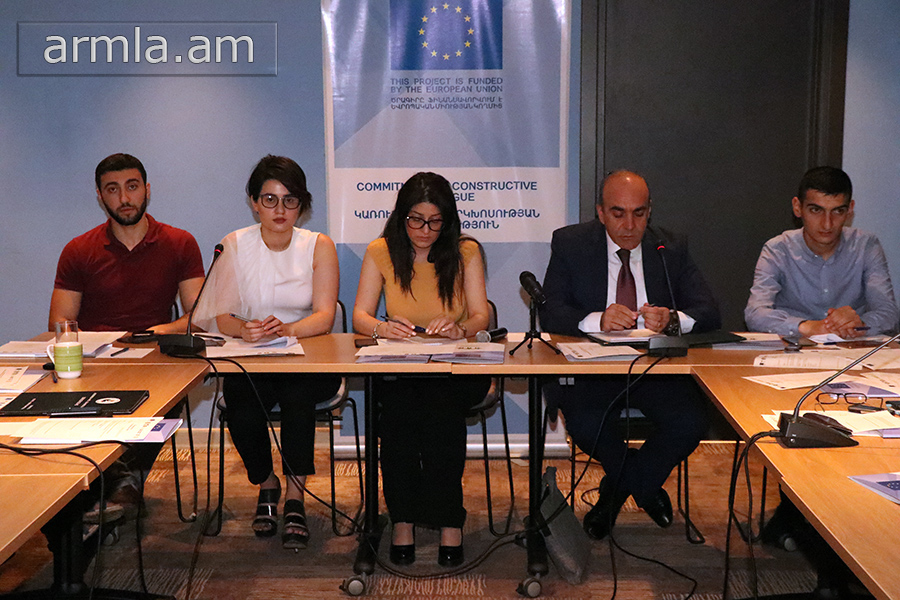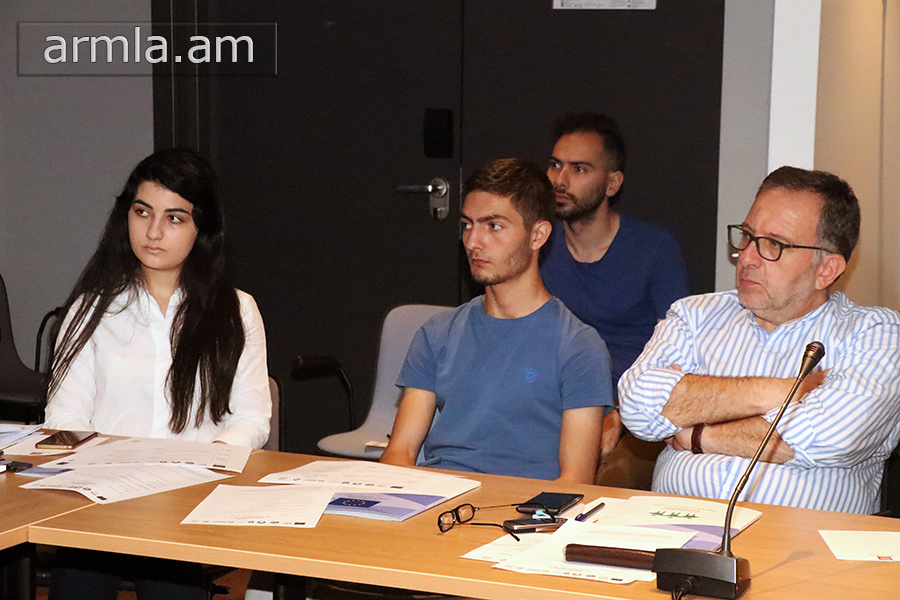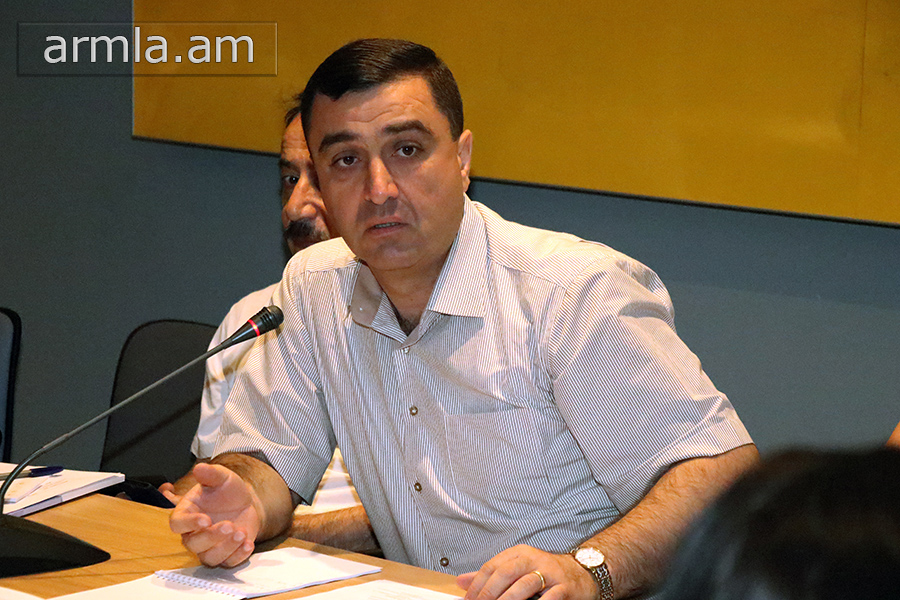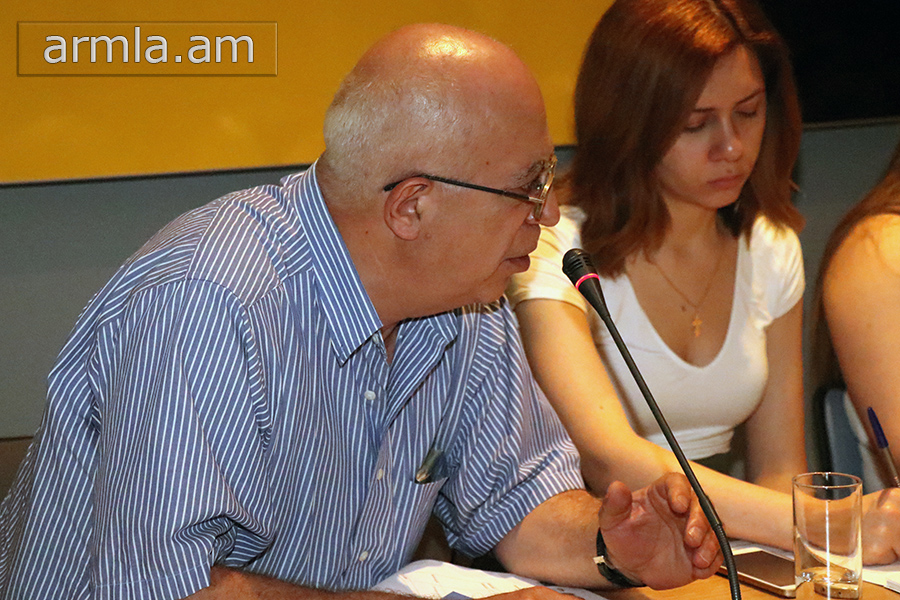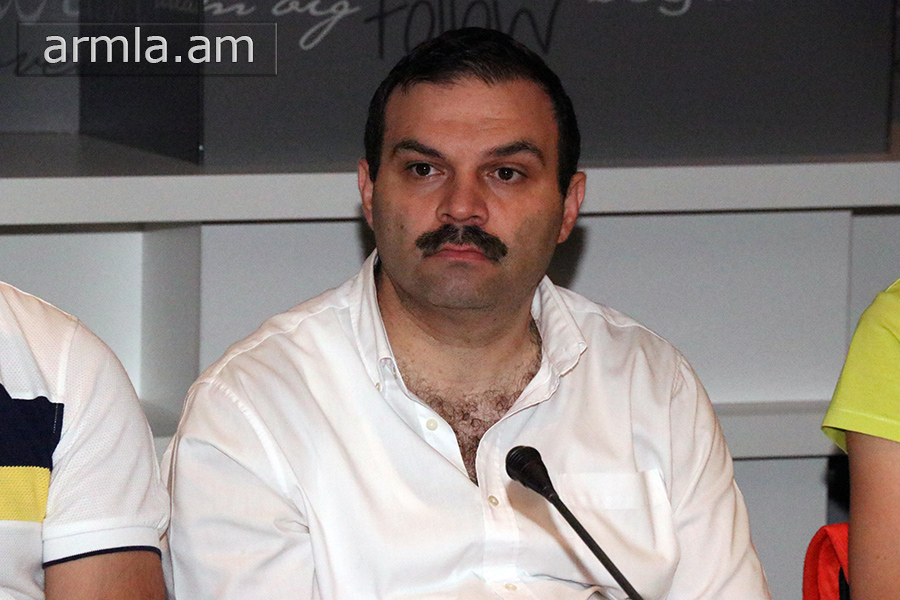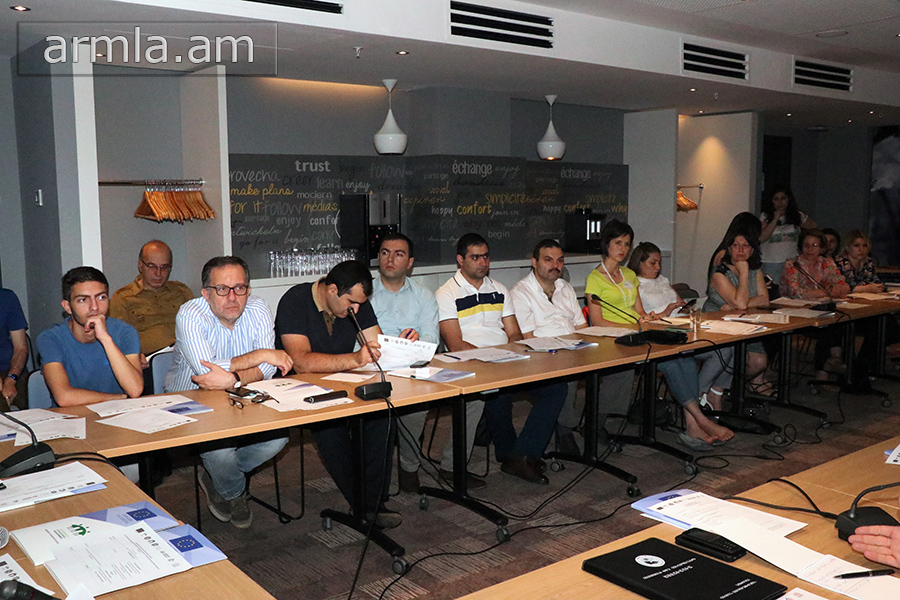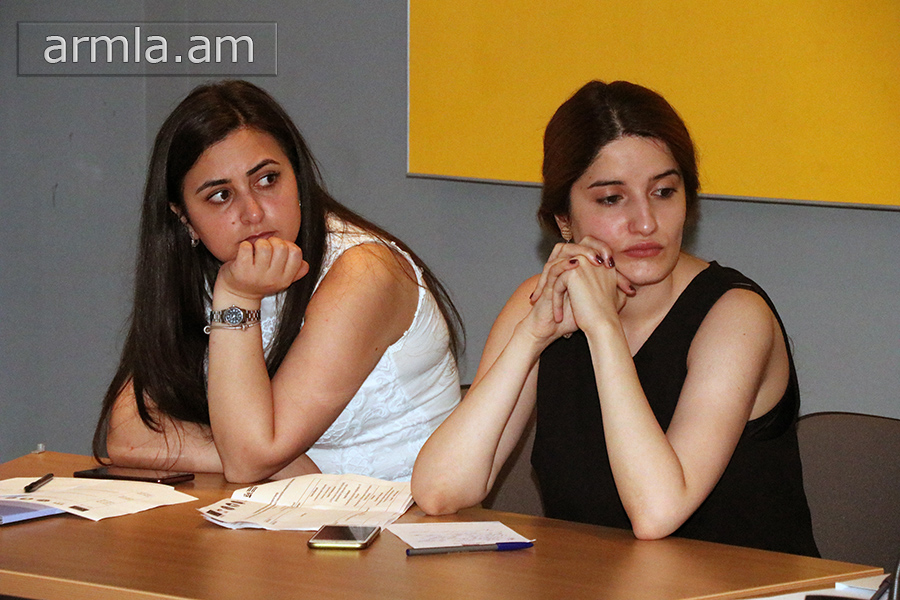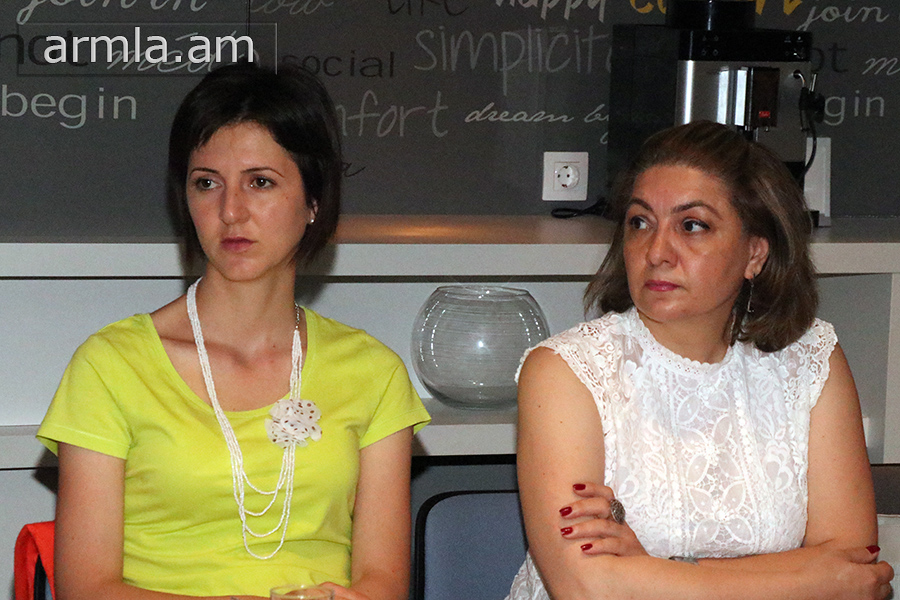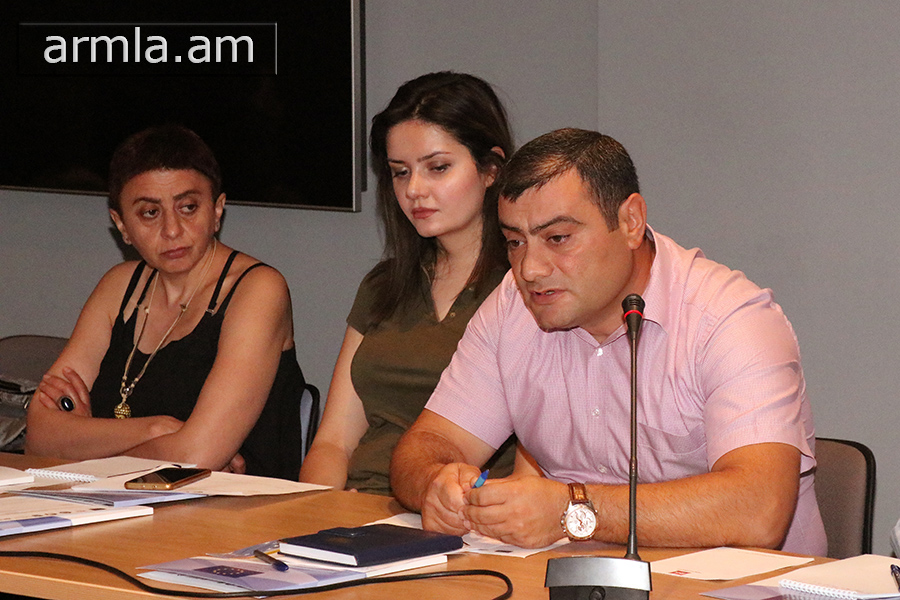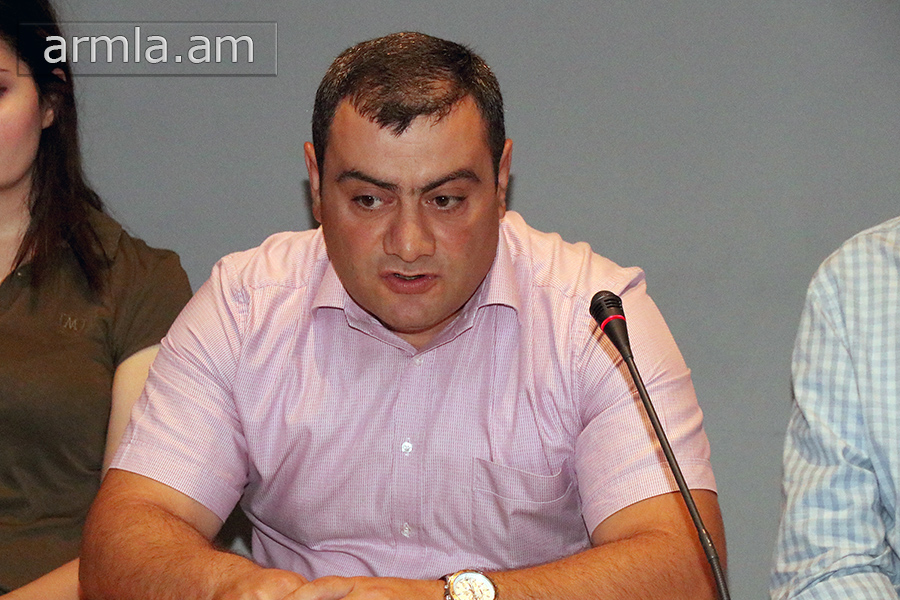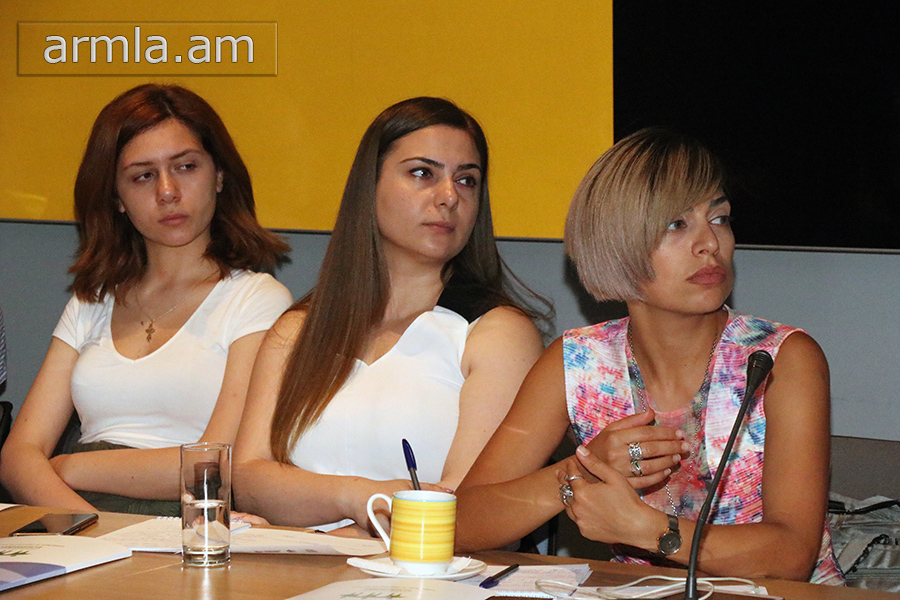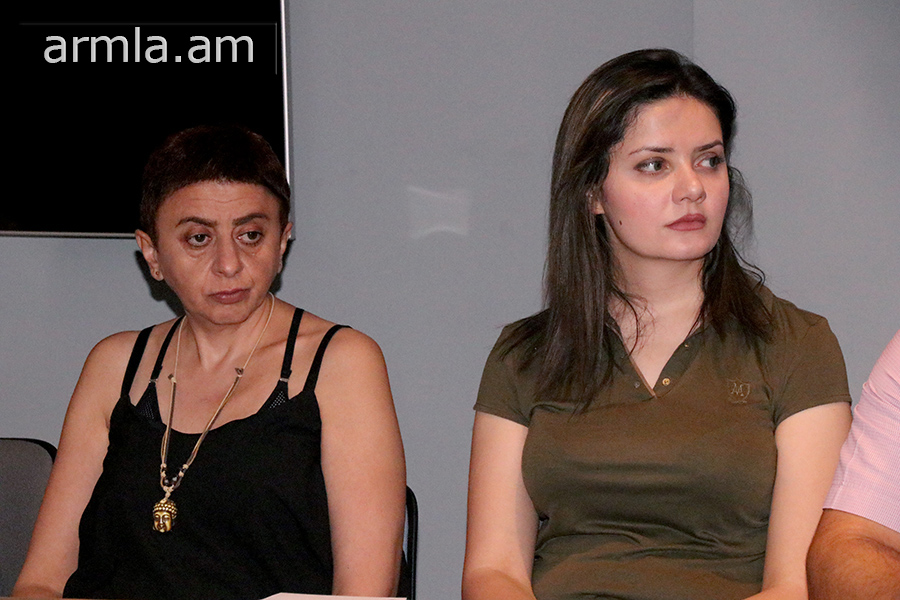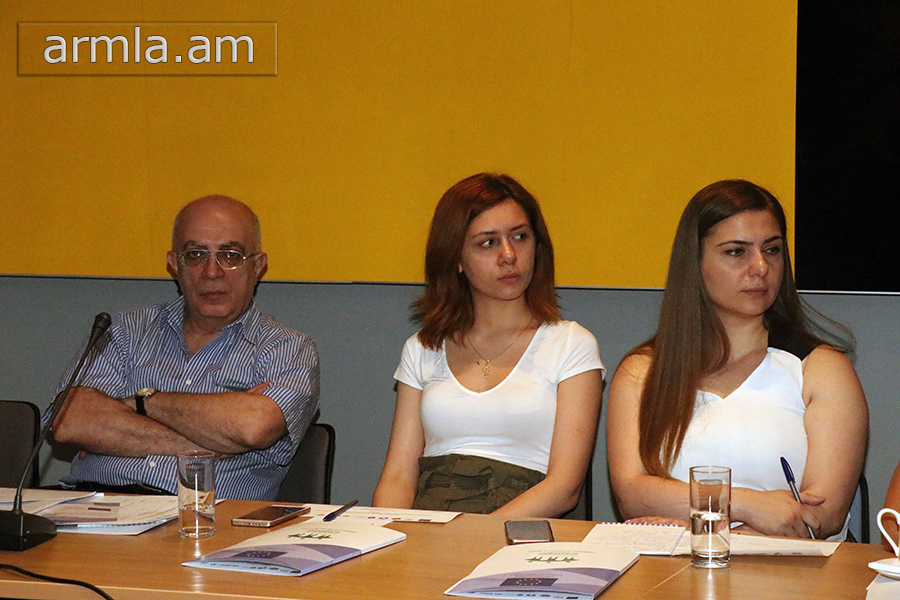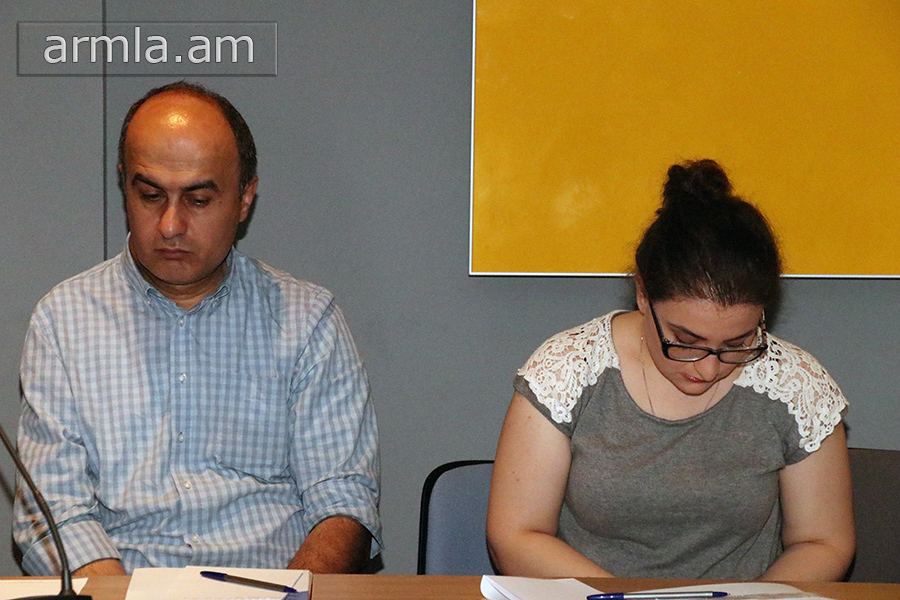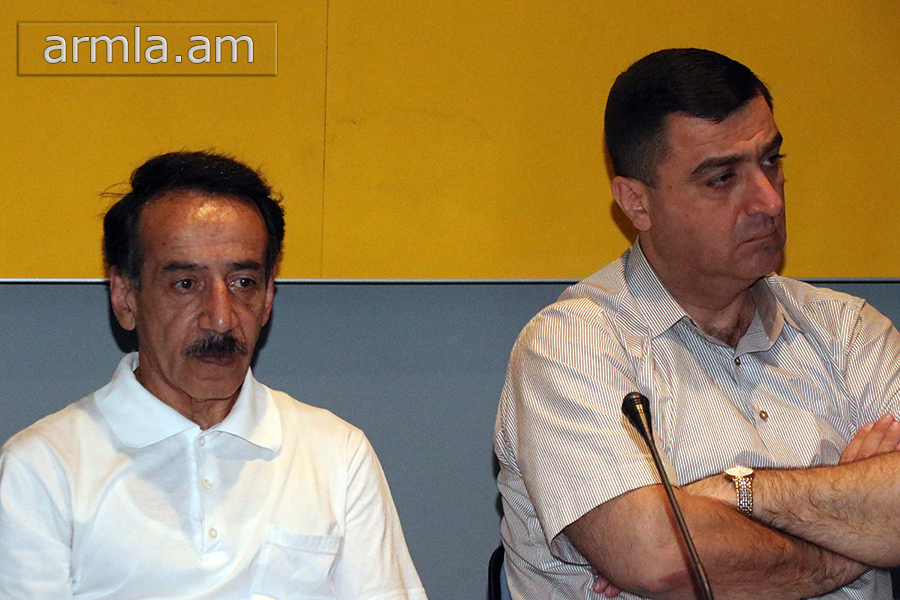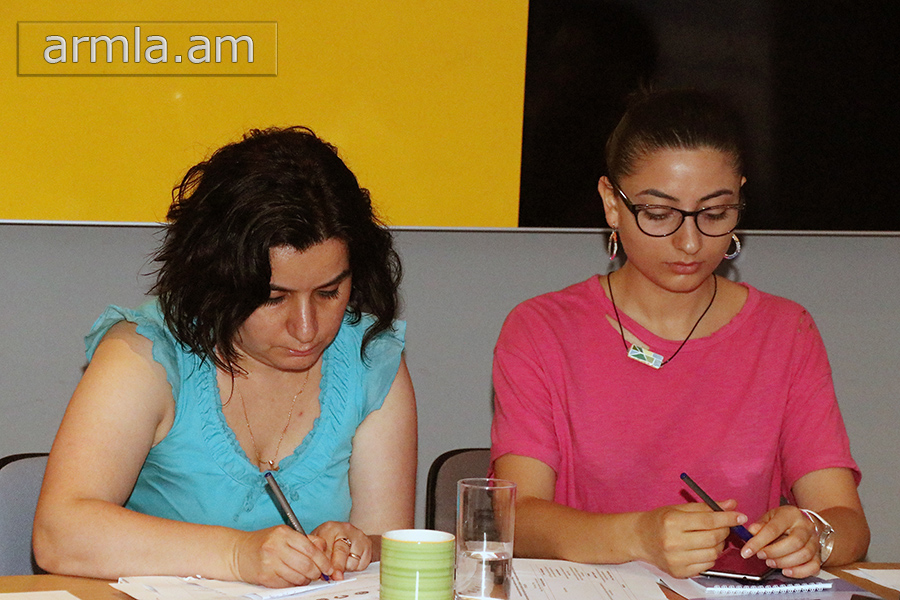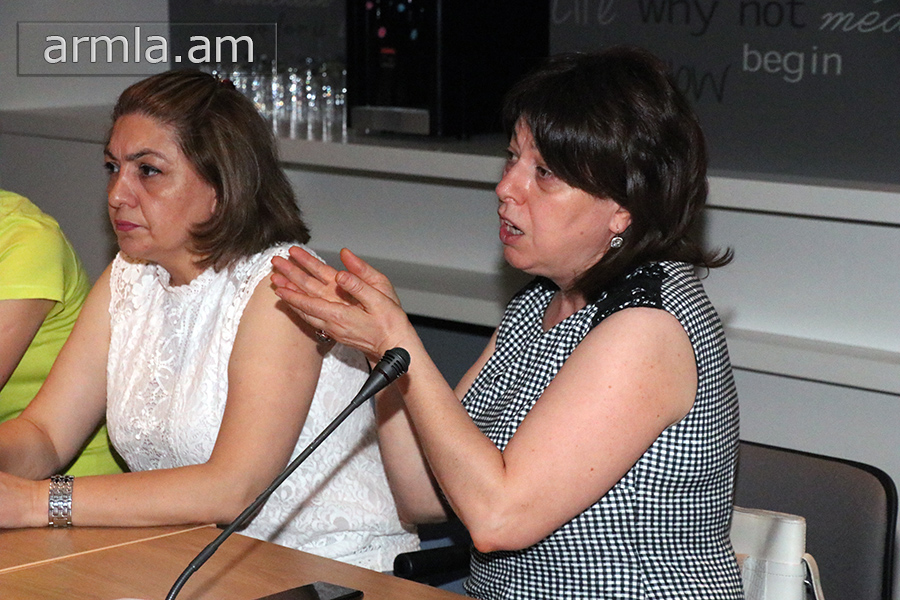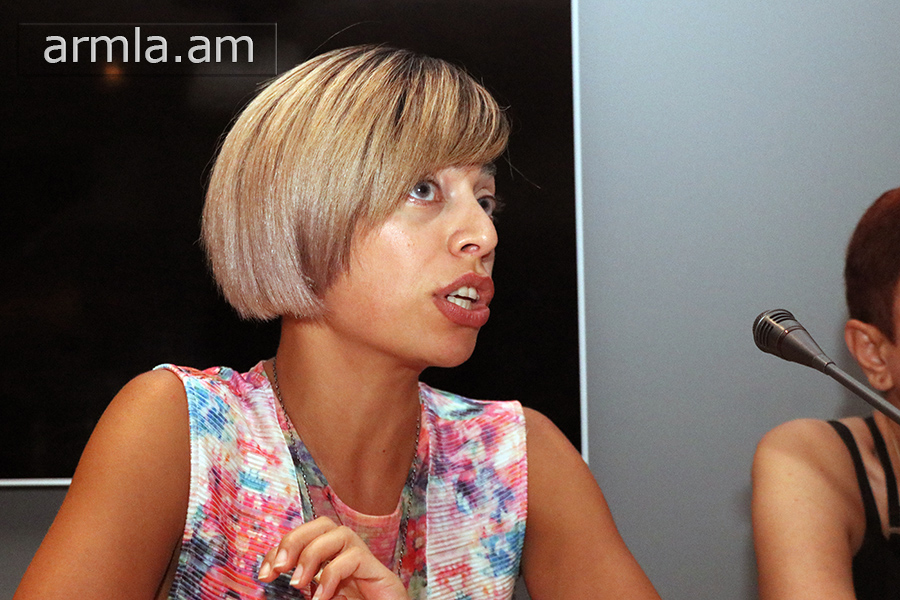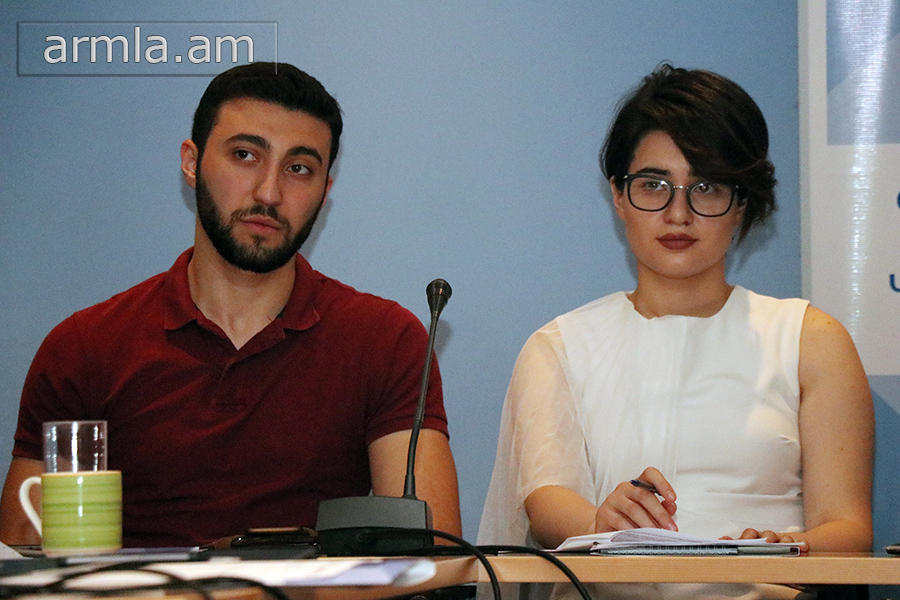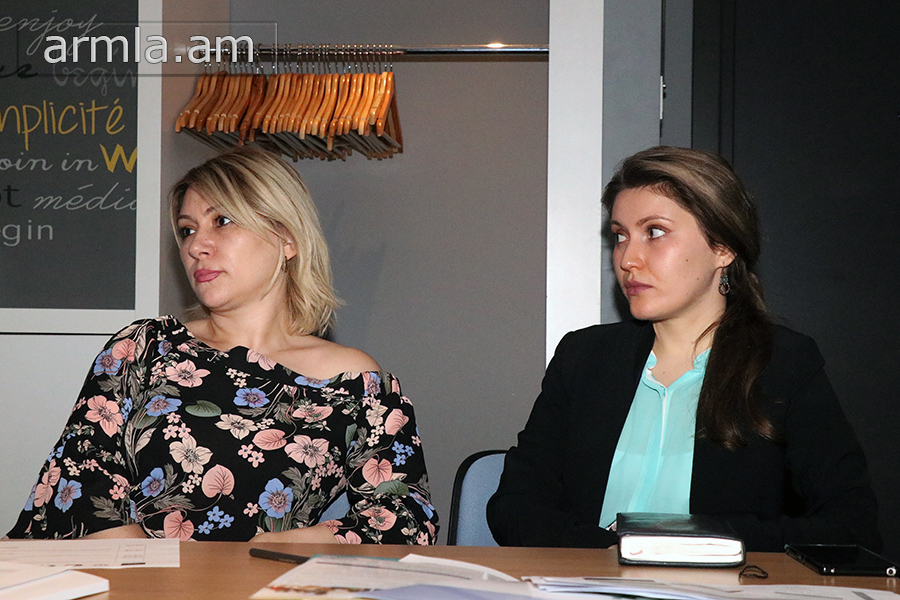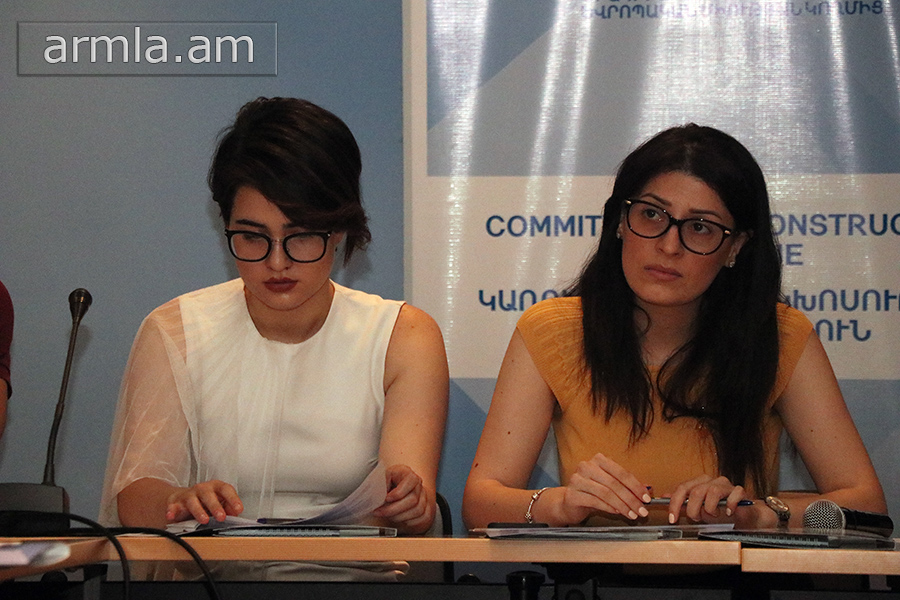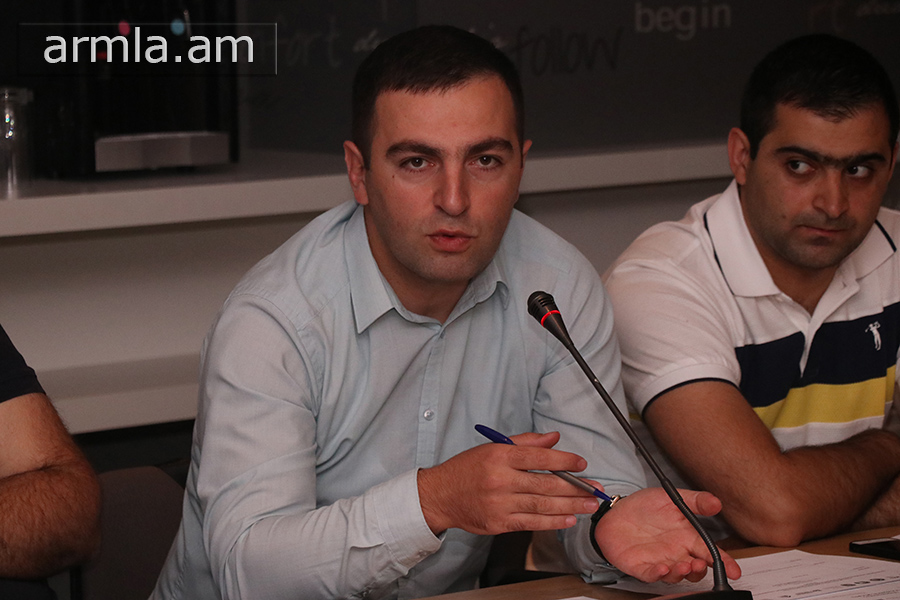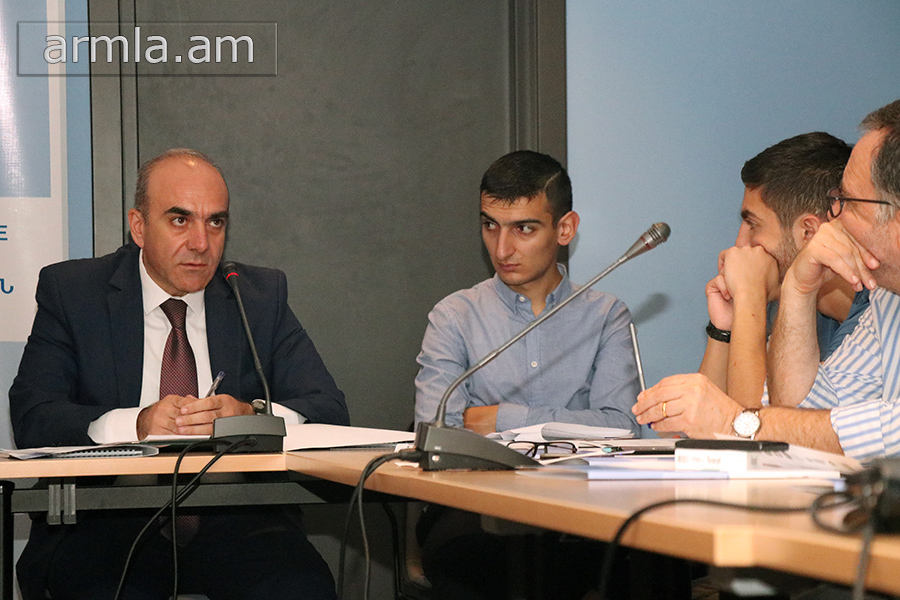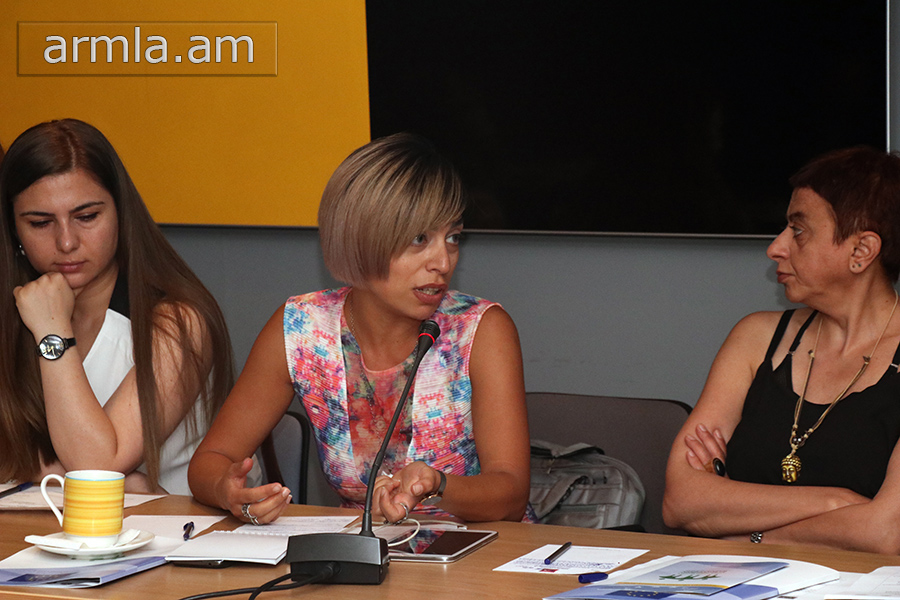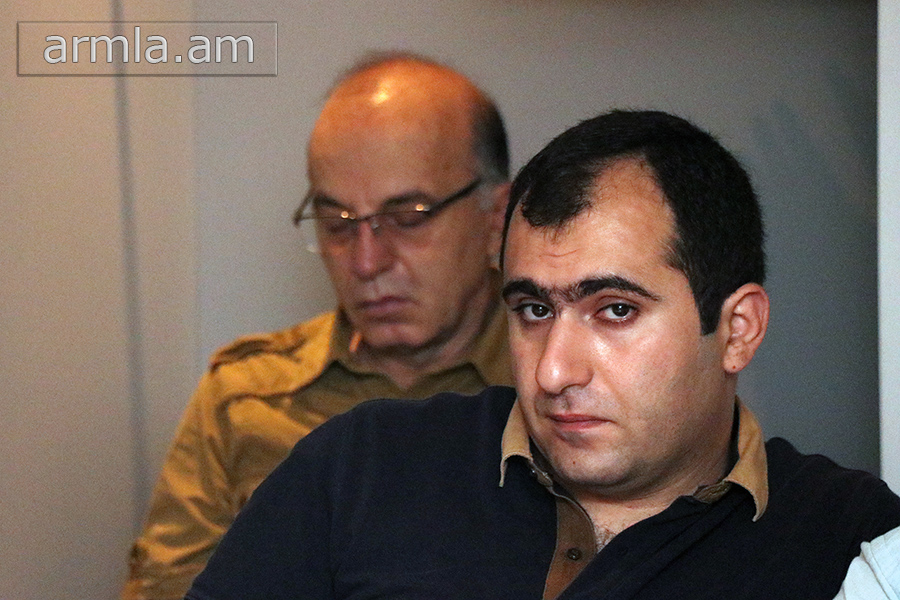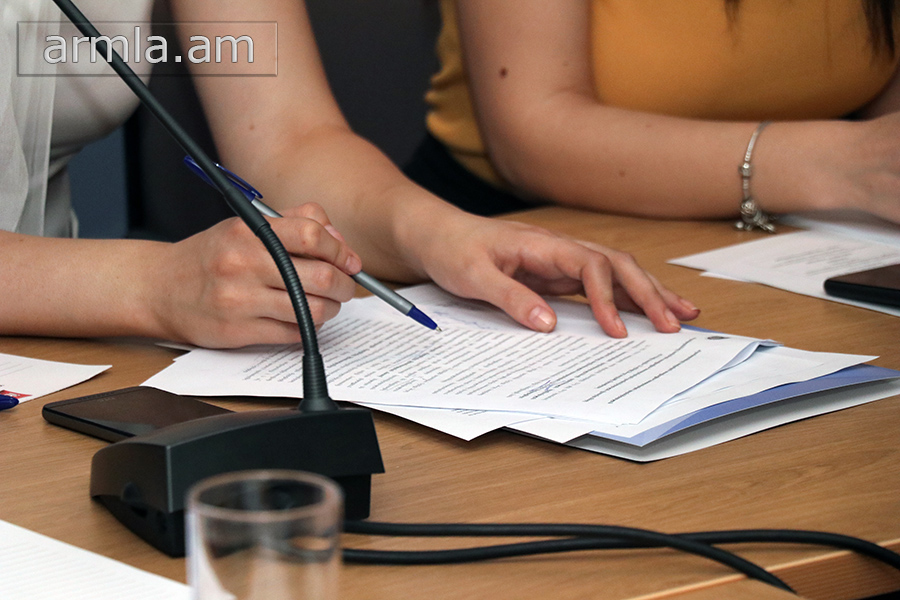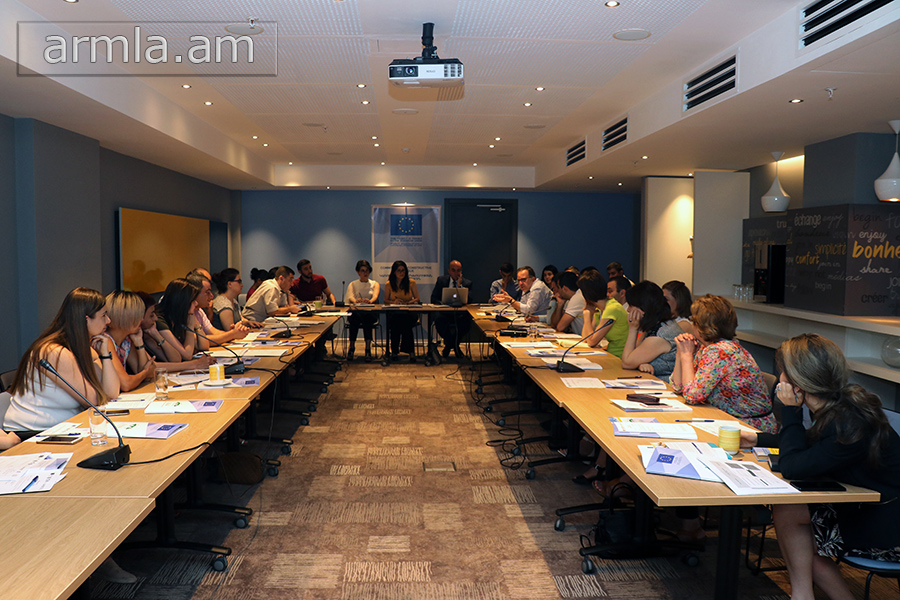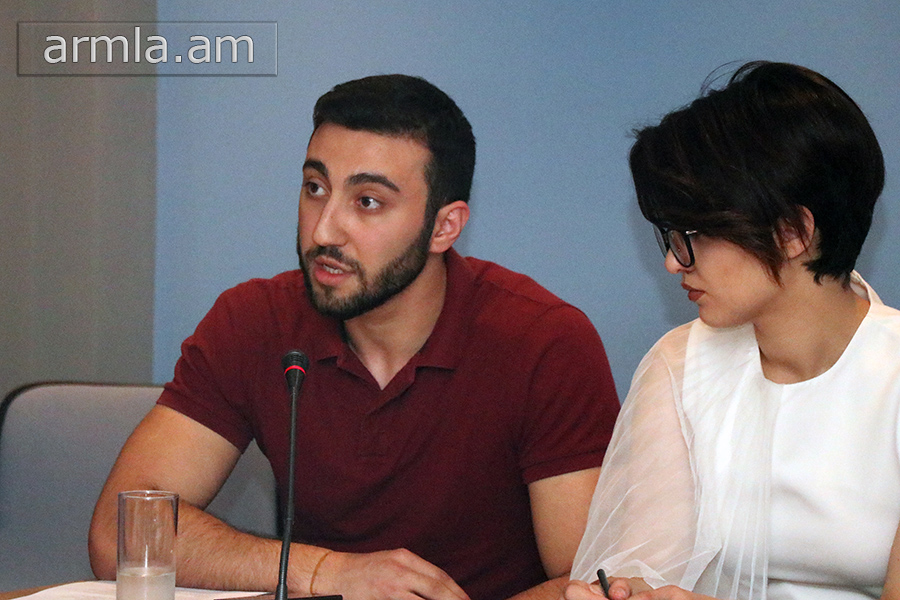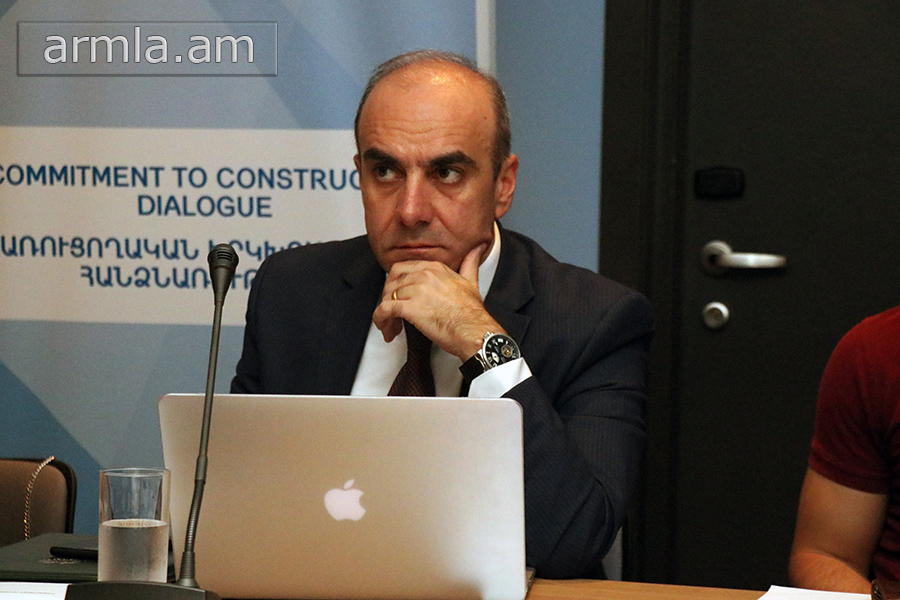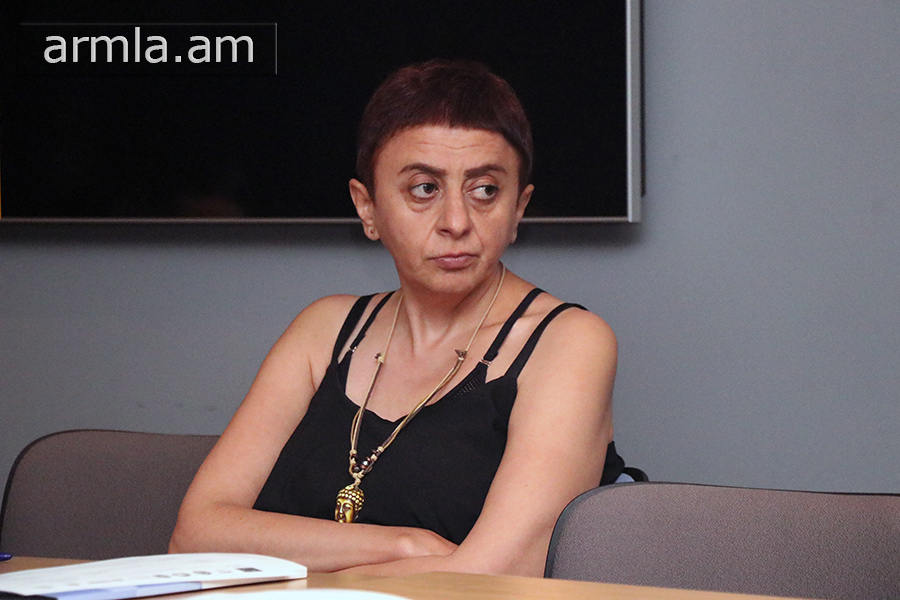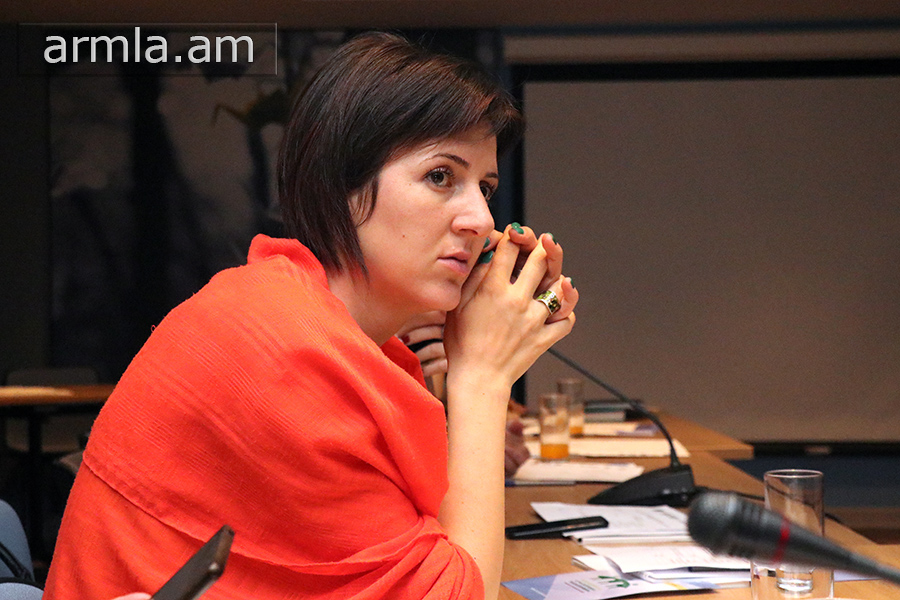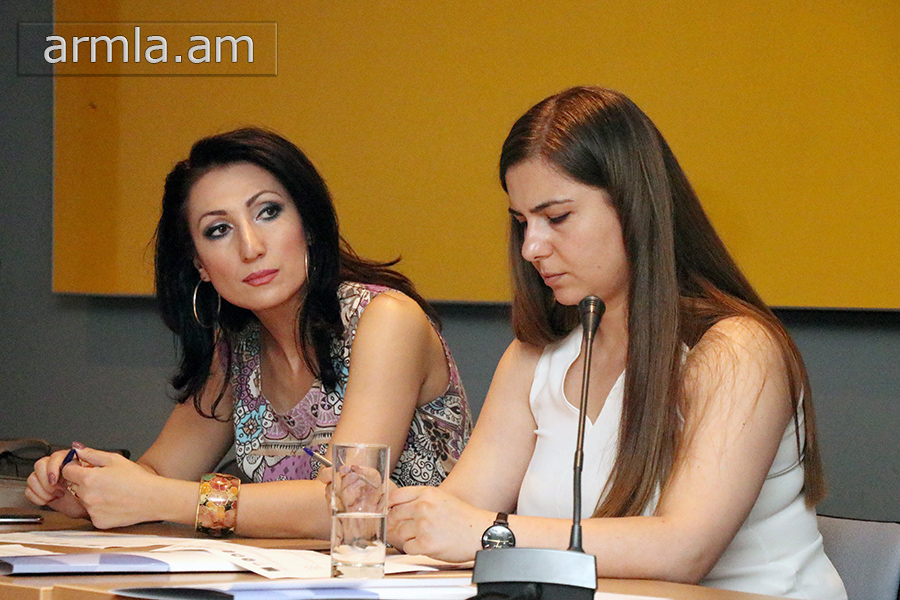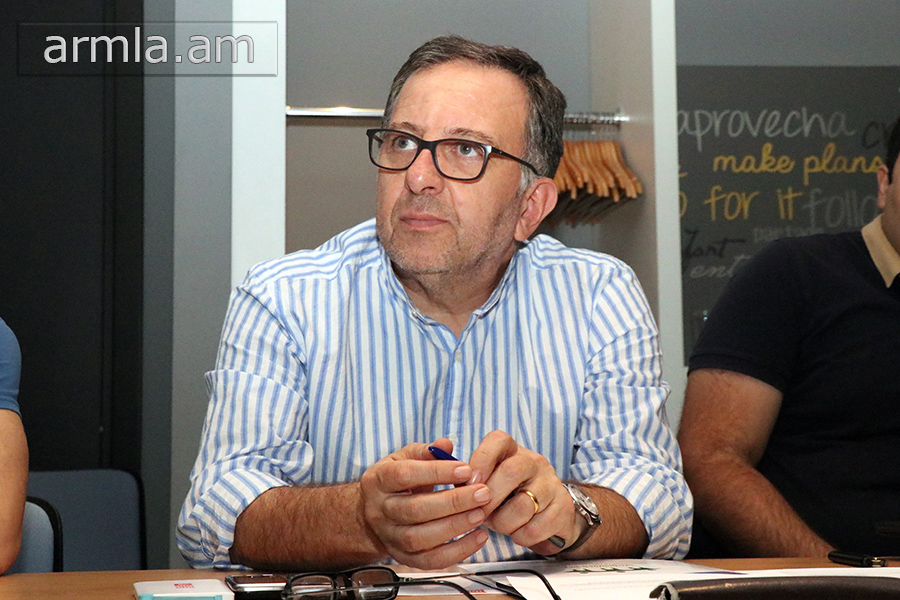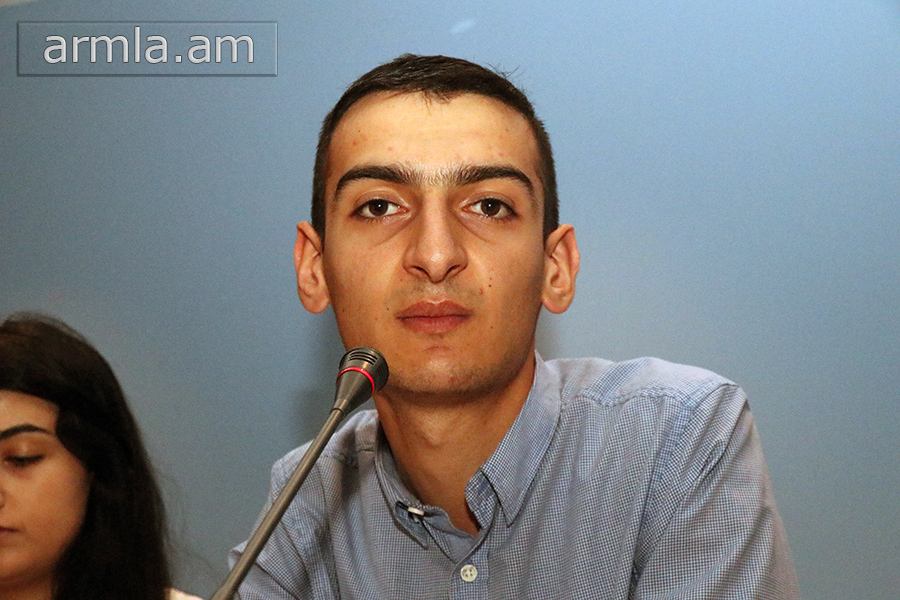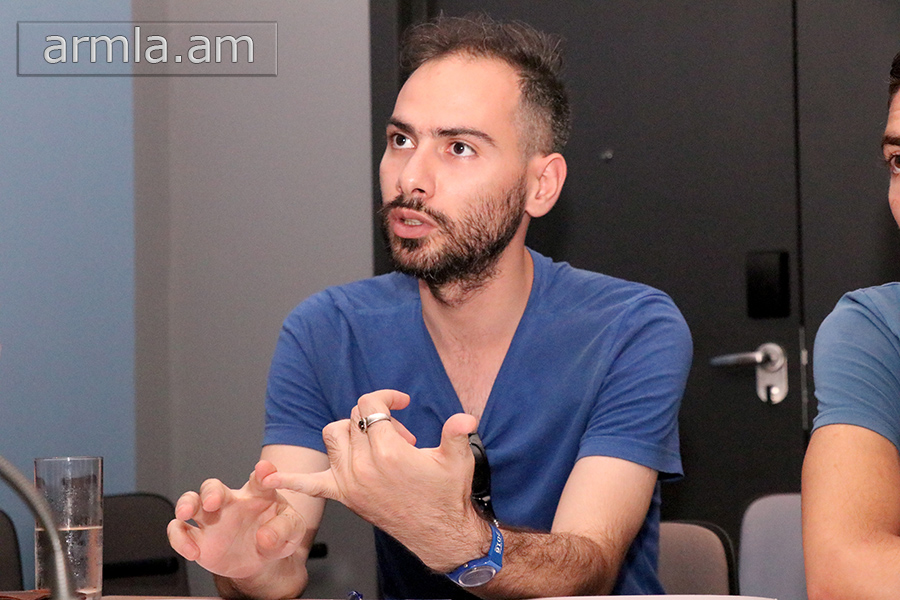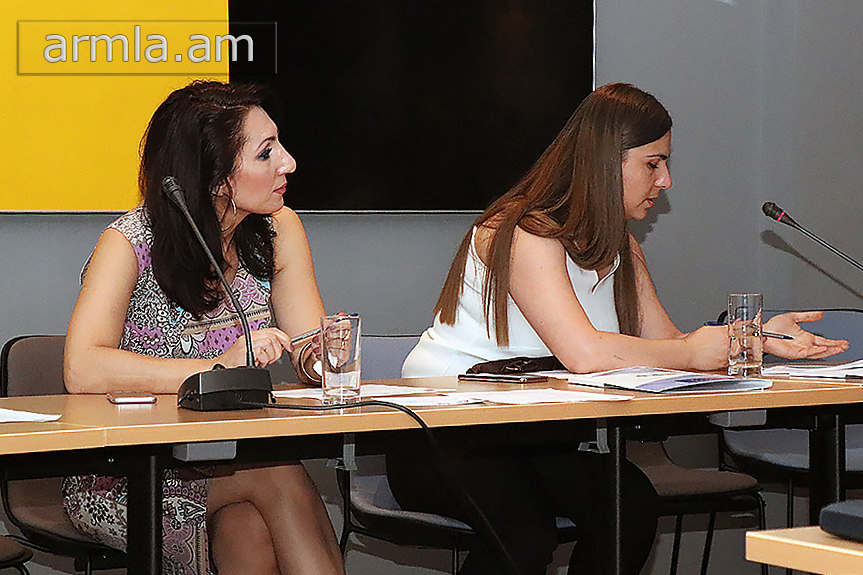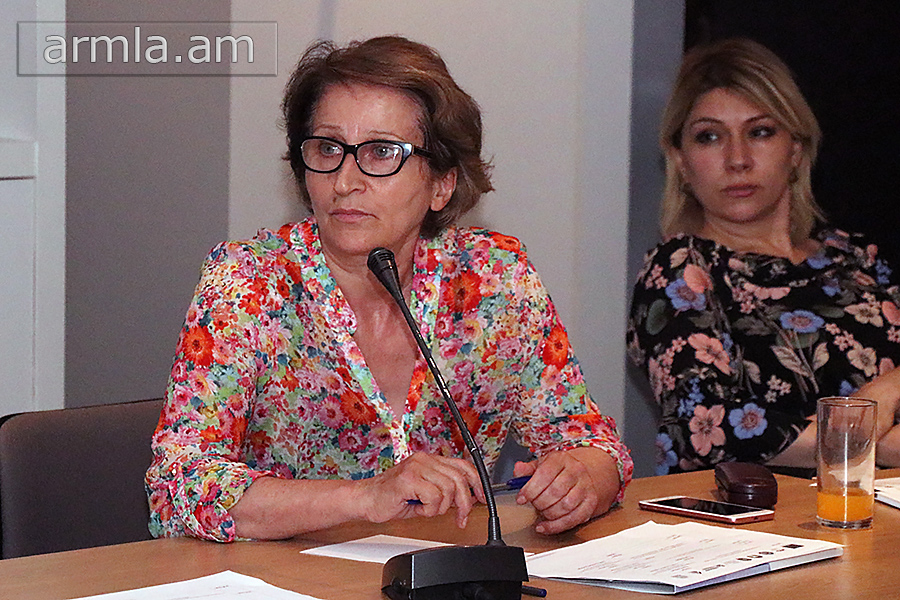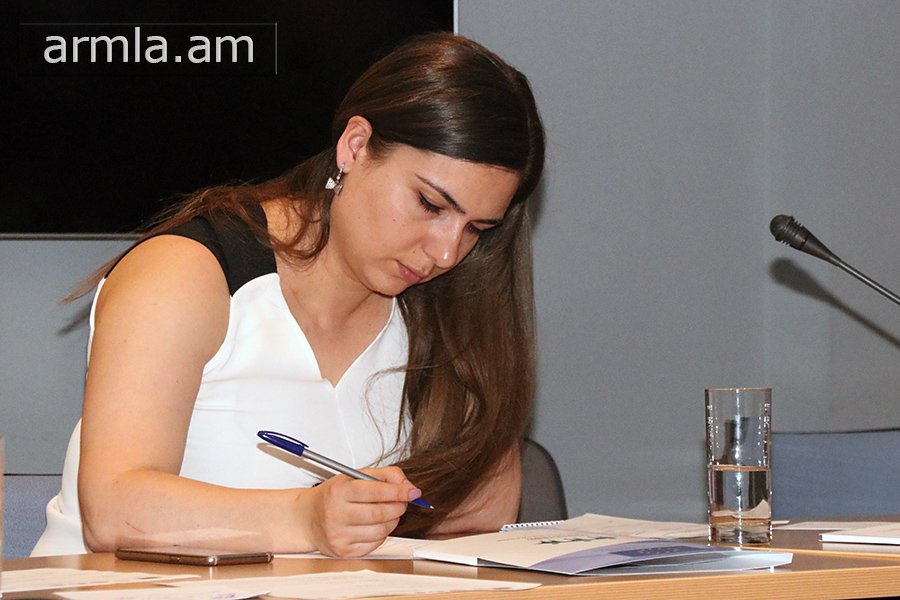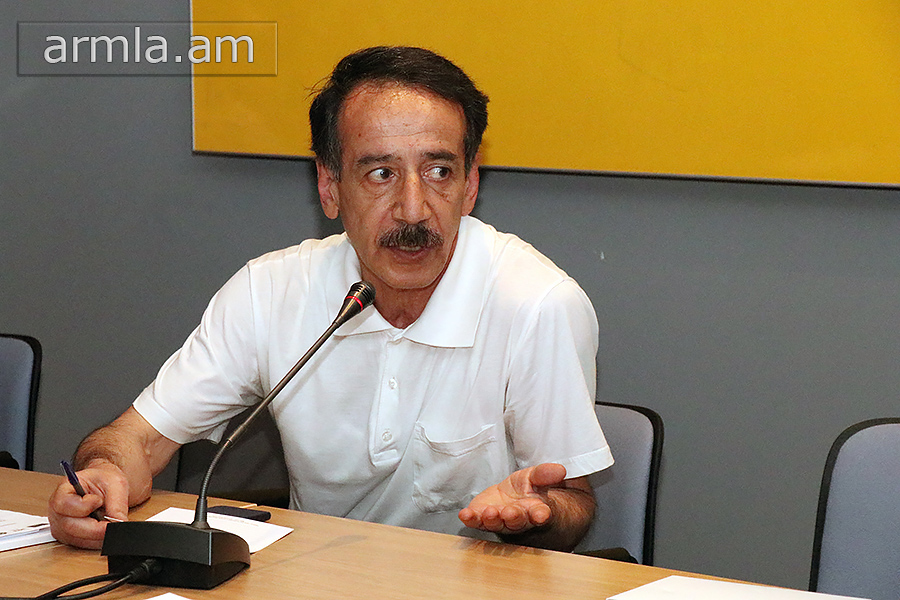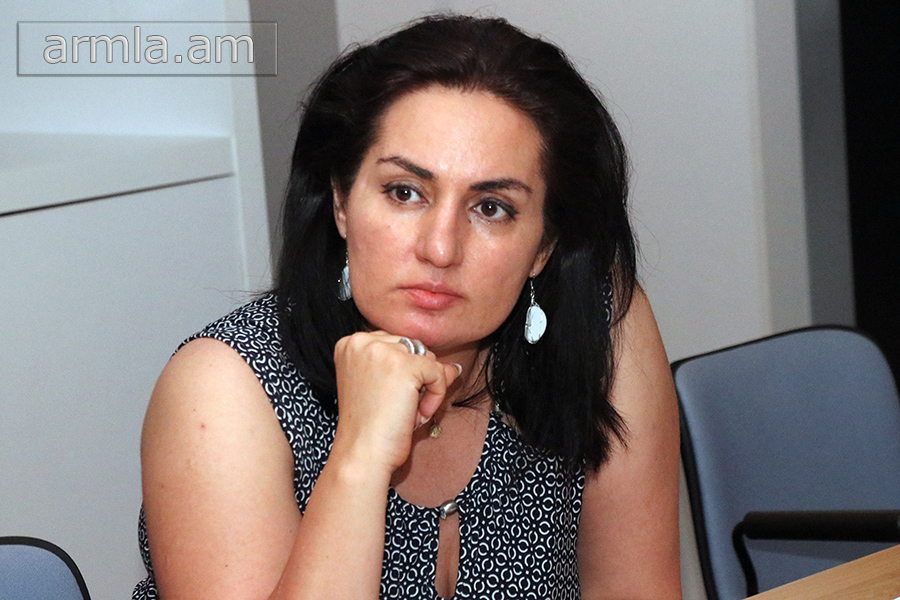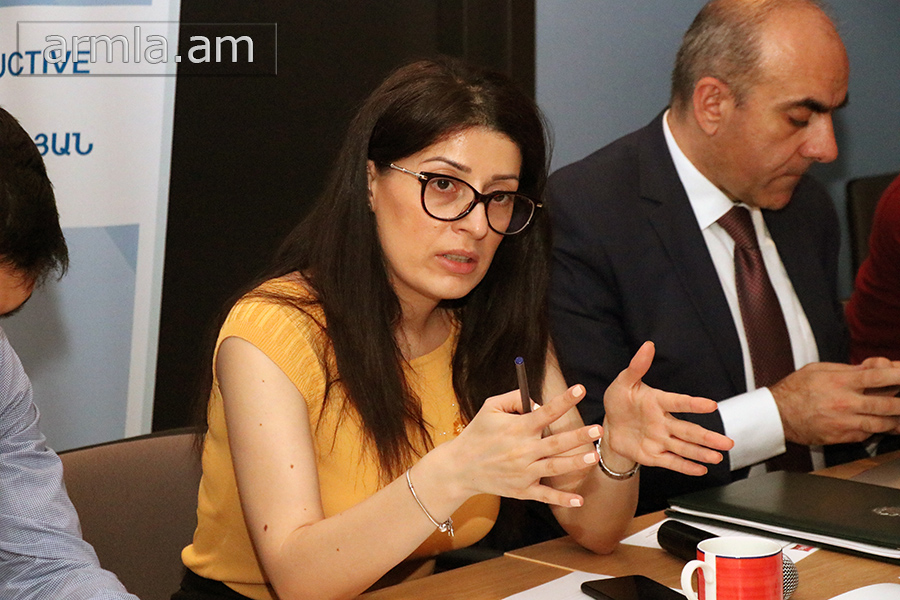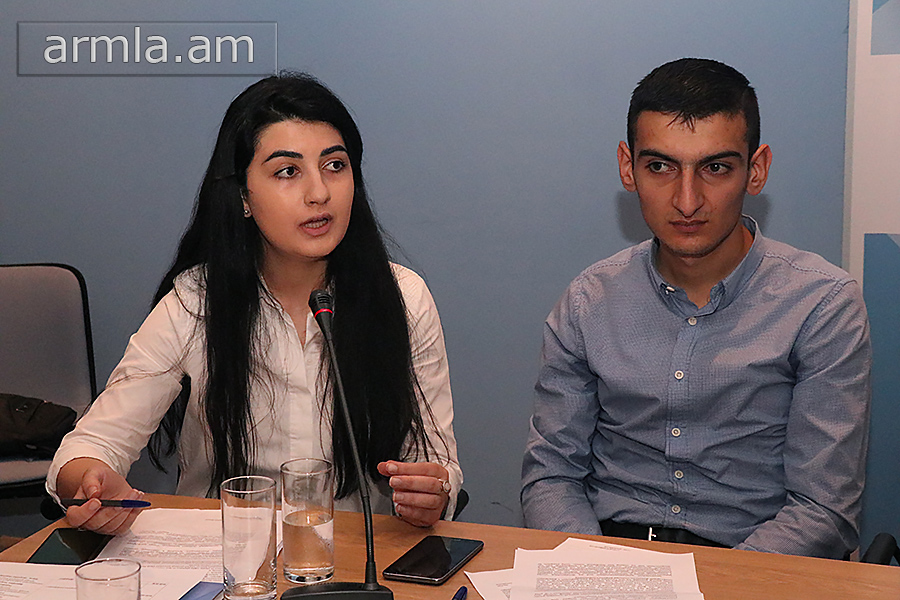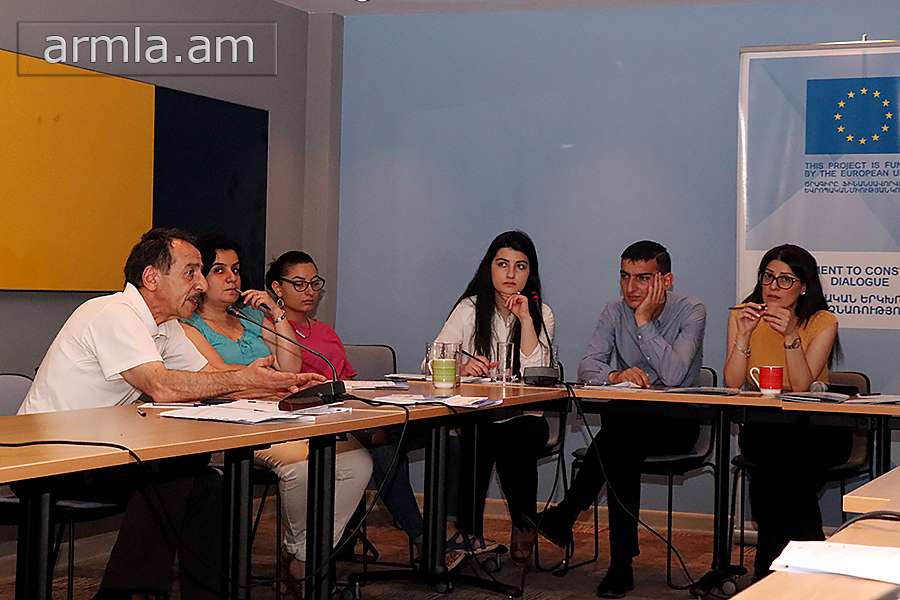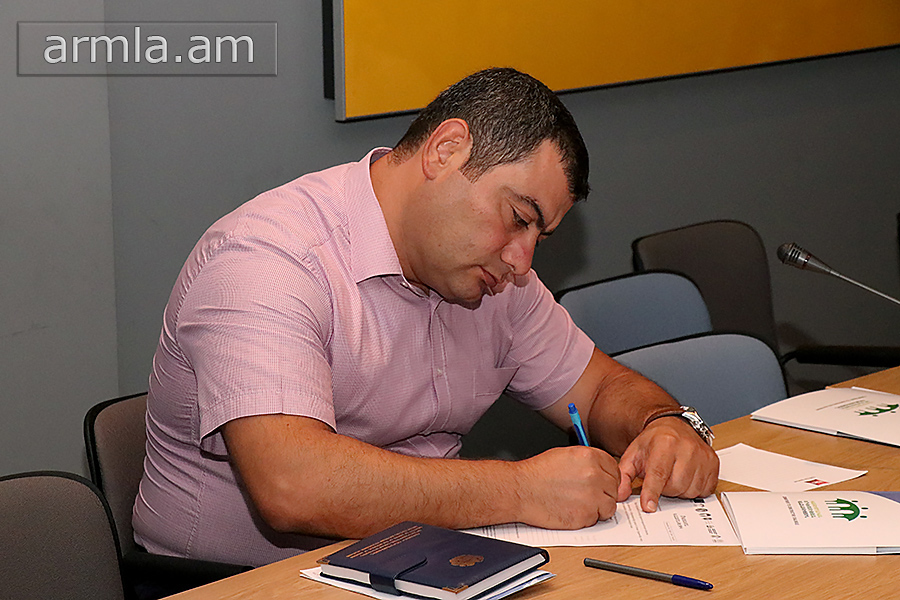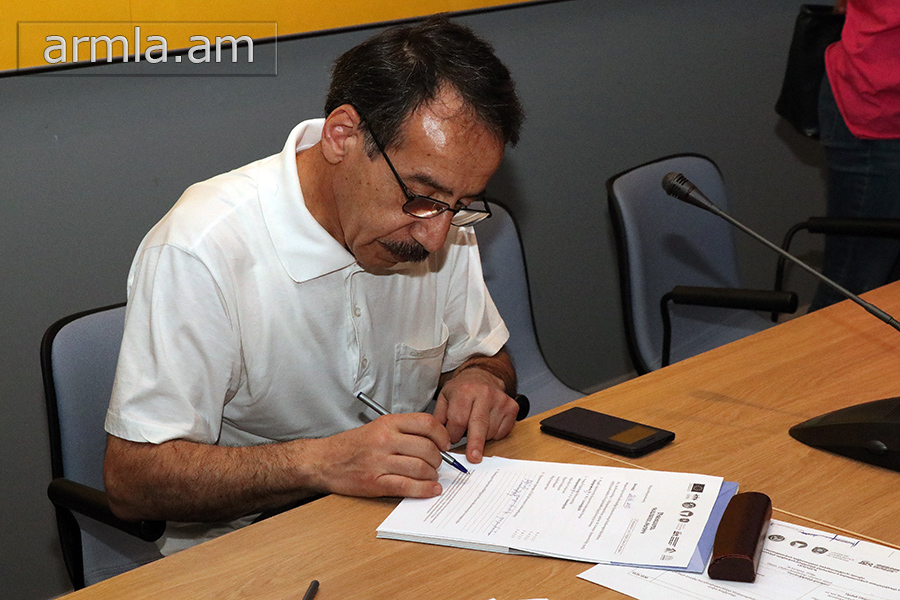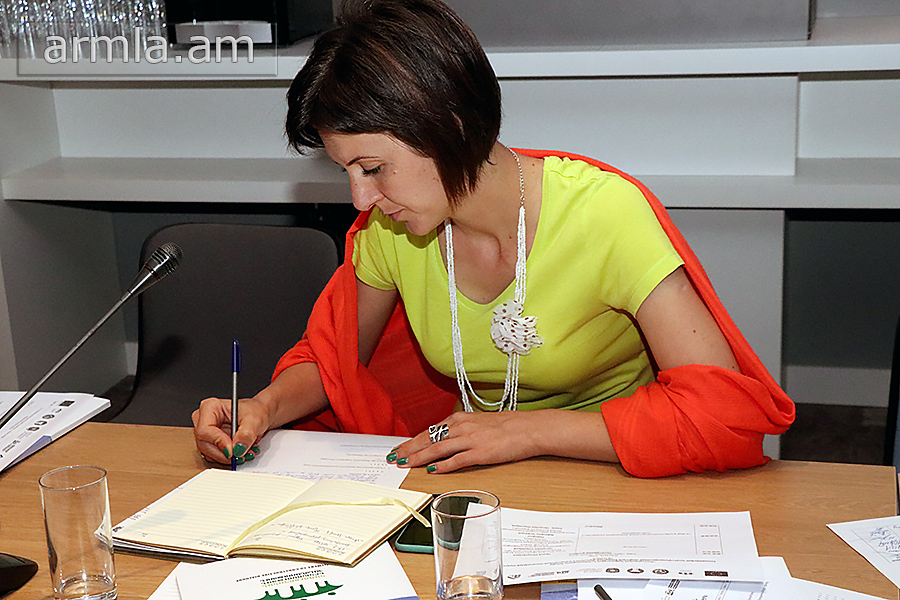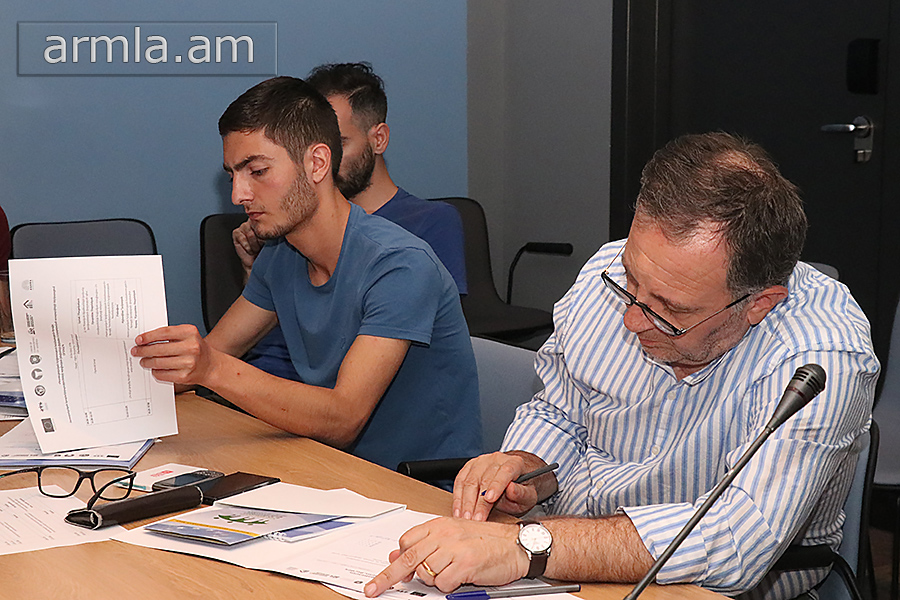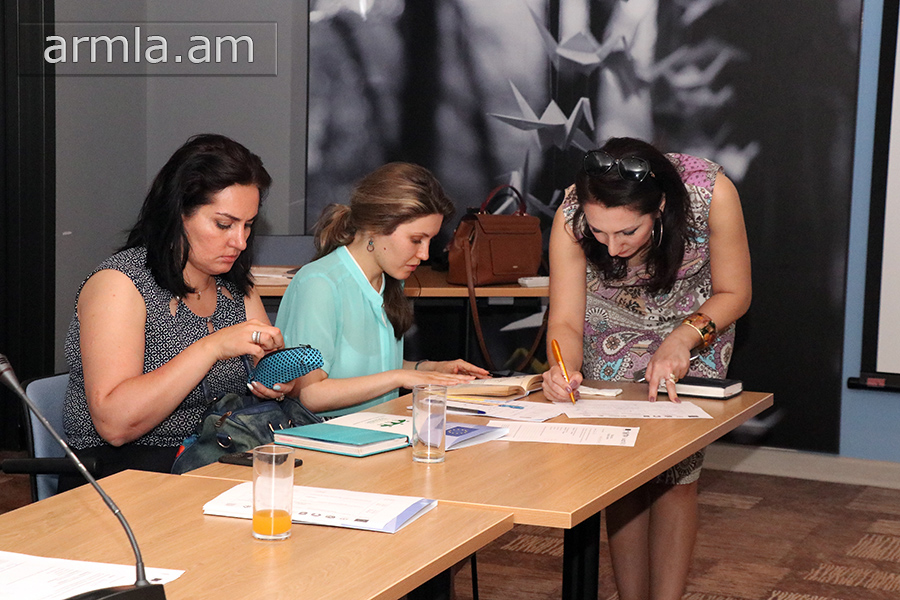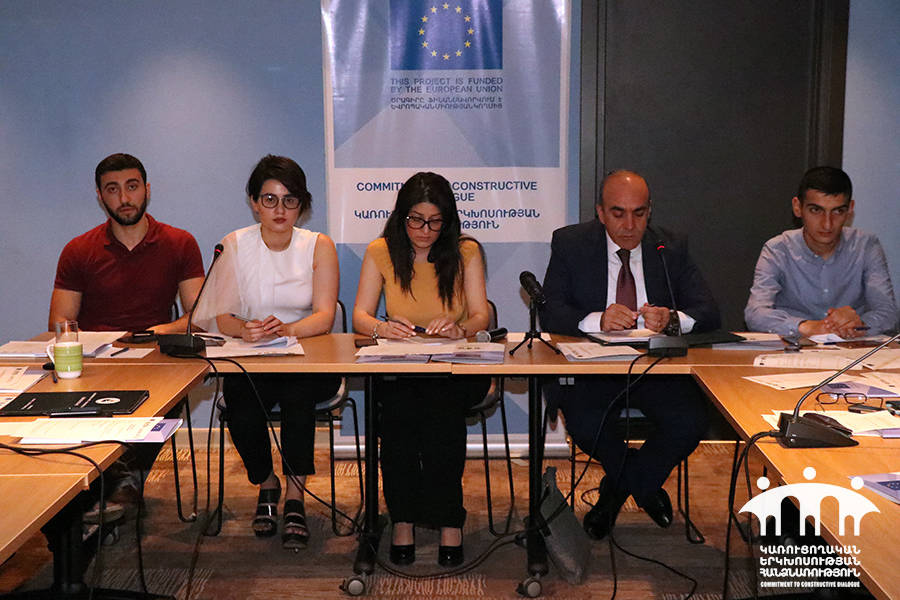
On June 26, a meeting-discussion on “Identification of Topical Issues Concerning Non-Governmental Organisations and Presentation of Innovative Recommendations” was held in the framework of the EU-funded “Commitment to Constructive Dialogue” Project.
“The Law on Non-Governmental Organizations has come into force since December 2016. We belive there are gaps and not regulated issues in the law, which give rise to different interpretations; for example the NGOs are facing problems in case of reports that should be presented to SRC,” Ms Syuzanna Soghomonyan, CSO-Government Dialogue Coordinator of the “Commitment to Constructive Dialogue” Project said and added that these issues will be discussed at the meeting of the representatives of the Ministry of Justice, State Revenue Committee (SRC) and CSOs.
Mr. Arman Mnatsakanyan, Head of the Legal Department of the State Revenue Committee of the RA highlighting the role of CSOs in the rule of law and transparency in public administration, noted that a special section in the SRC dealing with issues related to the activities of non-commercial organizations has been created in SRC which tries to assist them in realizing their rights and obligations.
During the event, the Lawyer/Experts of the project, Ms. Kristina Ghukasyan, Mr. Tigran Danielyan, Mr. Narek Yenokyan and Ms Mary Harutyunyan, present reports on the following topics:
- Issues in the Process of Reports submission by NGOs,
- Ensuring NGOs’ Financial Sustainability: Possibility of Introducing the “1 Percent Law”,
- Provision of the Jurisdiction to NGOs to Apply to Courts with Issues of Public Importance,
- Provision of the Jurisdiction to Specialised NGOs to Act as Amicus Curiae: Presentation of International Experience.
One of the issues of concern of the stakeholders was the requirement for statutory audits when reporting on public funds and in case of the turnover of over 5 million drams. These are problematic in practice because it is difficult to distinguish between in the scope of which assets works and expenditures have been made, especially if the NGO receives funding from several sources. At the same time, the threshold of 5 million drams for the statutory audit is quite low. The audit is fairly expensive and not all grants find it expedient to provide funding for the audit.
Arman Mnatsakanyan, Head of the Legal Department of the SRC said that as a result of this discussion the inventory issues and proposals will be discussed at the SRC and their official solutions and responses would be provided.
The “Commitment to Constructive Dialogue” project is implemented with the financial support of the European Union by a Consortium of civil society organisations, which are the Armenian Lawyers’ Association (lead organisation), Agora Central Europe (NGO based in the Czech Republic), the Armenian Centre for Democratic Education-CIVITAS, the International Centre for Human Development, the SME Cooperation Association and the Union of Communities of Armenia.
The project aims to enhance the influence of civil society organisations (CSOs) and CSO coalitions/networks on public policies in Armenia. This will allow organisations that are already working in sectoral coalitions to access additional resources, new groups of civil society experts to come together and encourage place their causes on the local and national policy agenda, to identify common concerns and priorities and approach government bodies with constructive and strategic policy engagement initiatives.
The project will provide sub-grants to CSOs and CSO coalitions for developing public policies and bringing significant changes in the 9 target sectors selected within the project, which include justice, human rights, public finance management, business, education, social sphere: social inclusion of children with disabilities, agriculture, economy, and energy
The Armenian Lawyers’ Association (ALA) was established in 1995 with a mission to promote to the establishment of the rule of law, democracy and formation of the civil society in Armenia, where the people are aware of their rights and where their rights are protected. Before February 2016, ALA used to be called Armenian Young Lawyers Association.

